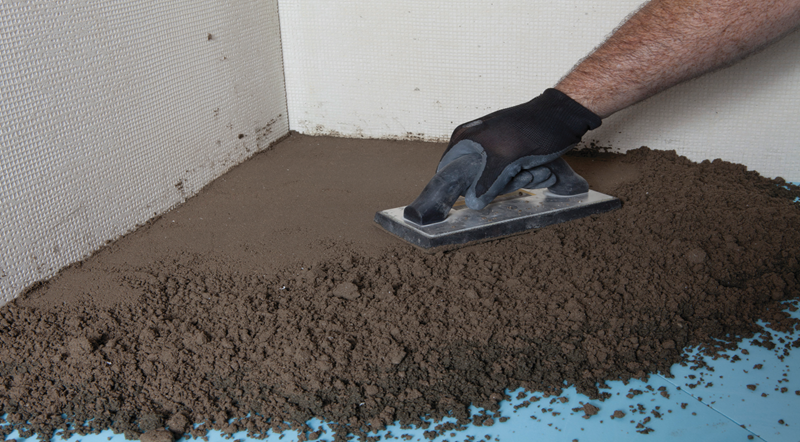Dry pack mortar, also known as deck mud or floor mud, is a versatile construction material widely used in a variety of applications. It is a simple yet effective mixture of sand, cement, and water, specifically designed to provide a strong and durable base for tiles, bricks, shower beds, and other installations. This article delves into the composition, applications, and advantages of dry pack mortar, highlighting its importance in modern construction.

Composition and Mixture Proportion
The standard composition of dry pack mortar is a ratio of one part cement to four parts sand, combined with just enough water to create a workable consistency. The mixture is ideal when it sticks together when molded into a ball by hand, as illustrated in Figure 1. The ball should neither crumble due to insufficient water nor slump because of excessive water, ensuring the perfect balance for optimal performance.
This mixture is known to yield a compressive strength of approximately 21 MPa, making it highly reliable for various structural applications. While the 1:4 ratio is standard, alternative proportions such as 1:2.5, 1:5, or even 1:6 are also used based on specific project requirements. The quantity of water required depends largely on the moisture content of the sand being used—sand with low moisture content demands a greater quantity of water than sand with higher moisture content.
Applications of Dry Pack Mortar
Dry pack mortar is celebrated for its versatility and can be employed in numerous applications, ranging from residential to commercial projects.
- Thick Mortar Beds
Dry pack mortar is commonly used to prepare thick mortar beds for various purposes, such as tile or brick installation (Figure 4). It is particularly effective for leveling concrete surfaces up to 51 mm thick. - Shower Bases
A major application of dry pack mortar is in floating shower bases, where it provides a durable and well-sloped surface to support tiles and ensure proper drainage (Figure 5). - Bonding and Floating Beds
Dry pack mortar can serve as a directly bonded base or as a detached floating mortar bed over a cleavage membrane or waterproofing layer. This adaptability makes it suitable for a variety of installation scenarios. - Residential and Commercial Use
The material can be employed in both dry and wet environments, making it a practical choice for bathrooms, kitchens, patios, and other spaces. - Repairing Concrete Wall Holes
Dry pack mortar is also used to fill deep holes in concrete walls. The mixture is applied in layers, each approximately 10 mm thick, and compacted using tools like hammers, sticks, or metal rods. Metal rods are particularly effective as they ensure better compaction and a stronger bond. For best results, tamping should be done directly and at an angle to compact the sides of the hole thoroughly.
Advantages of Dry Pack Mortar
Dry pack mortar offers numerous benefits that make it a go-to choice for construction professionals:
- Versatility
Suitable for both interior and exterior applications, dry pack mortar can be used in a wide range of projects. - Convenience
The need for jobsite mixing of sand and cement is eliminated, saving time and effort. - Ease of Application
Dry pack mortar is easy to tamp, compact, and slope, making it highly user-friendly for installers. - Consistency
The material ensures a uniform mix, especially on large-scale projects, which contributes to its reliability and quality.
Conclusion
Dry pack mortar is an indispensable material in the construction industry, valued for its simplicity, strength, and adaptability. Its well-balanced composition provides a durable and reliable base for installations ranging from tiles to shower beds. Whether for residential or commercial use, its practical advantages—such as ease of application, versatility, and consistent results—make it a preferred choice among construction professionals. As a cost-effective and efficient solution, dry pack mortar continues to play a pivotal role in modern building projects.
